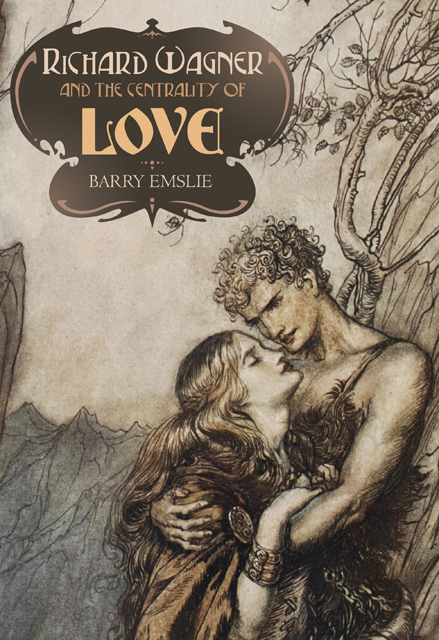Book contents
- Frontmatter
- Contents
- Author's Note
- 1 Introduction, or the Uses of Love
- 2 Sensuality and Spirituality in the Early Music Dramas
- 3 Music and the Eternal Feminine
- 4 The Ring of the Nibelung
- 5 Love and Death: Tristan und Isolde
- 6 The Mastersingers of Nuremberg
- 7 Parsifal
- 8 Contradictions and Speculations
- Notes
- Bibliography
- Index
5 - Love and Death: Tristan und Isolde
Published online by Cambridge University Press: 02 March 2023
- Frontmatter
- Contents
- Author's Note
- 1 Introduction, or the Uses of Love
- 2 Sensuality and Spirituality in the Early Music Dramas
- 3 Music and the Eternal Feminine
- 4 The Ring of the Nibelung
- 5 Love and Death: Tristan und Isolde
- 6 The Mastersingers of Nuremberg
- 7 Parsifal
- 8 Contradictions and Speculations
- Notes
- Bibliography
- Index
Summary
In 1862 wagner suggests a programme of his own music for a symphony concert in Leipzig. He proposes something which is now standard in the concert hall: the prelude to the first act of Tristan und Isolde (the work was completed in 1859), which would then be followed ‘without a break’ by the ‘closing section of the opera (without singing)’. Interesting are the titles he gives to these two orchestral pieces. The latter, which Wagnerians have come to call the Liebestod (the love-death), he refers to as the ‘transfiguration’, while, at least for the purpose of a concert performance, it is the prelude that he wants to call the ‘Love-Death’. Wagner is telling us here a great deal more than he was likely to have known.
This first thing to observe is that the suggested titles are utterly apposite. The so-called Liebestod with which on the stage an ecstatic Isolde ends the opera – and her own life – is indeed a transfiguration (Verklarung). She imagines that the dead Tristan lying at her feet is in fact rising in exaltation above her and feels that she is surrounded by an intoxicating sound world into which she will (in the inevitable oxymoron) sink and drown as she is carried aloft to her soul-mate. This is arguably the most remarkable and explicit of Wagner's attempts to realise the redemption idea and is for the true devotee the most narcotic of all the blissful passages in the master's oeuvre. It would be fair to say that the Liebestod's place in musical history is unequalled. Furthermore, the musical and dramatic meaning of the piece – as far as one can get it into words – clearly invites Schopenhauerian terms like ‘renunciation’ and ‘resignation’, although, as we will see in the next section, this ‘love death’ profoundly violates the Schopenhauerian agenda in one singular and critical respect. Of more significance for the moment, however, is Wagner's suggestion that the title love death should, instead, be is used for the act 1 prelude.
We can infer from this that Tristan und Isolde begins at the end. However, that does not mean that the work is a flashback. Rather it means that all the great questions and their inevitable answers are before us from the first ‘resolution’ of the famous dissonant Tristan chord in the orchestra pit. The matter is decided.
- Type
- Chapter
- Information
- Richard Wagner and the Centrality of Love , pp. 128 - 166Publisher: Boydell & BrewerPrint publication year: 2010



